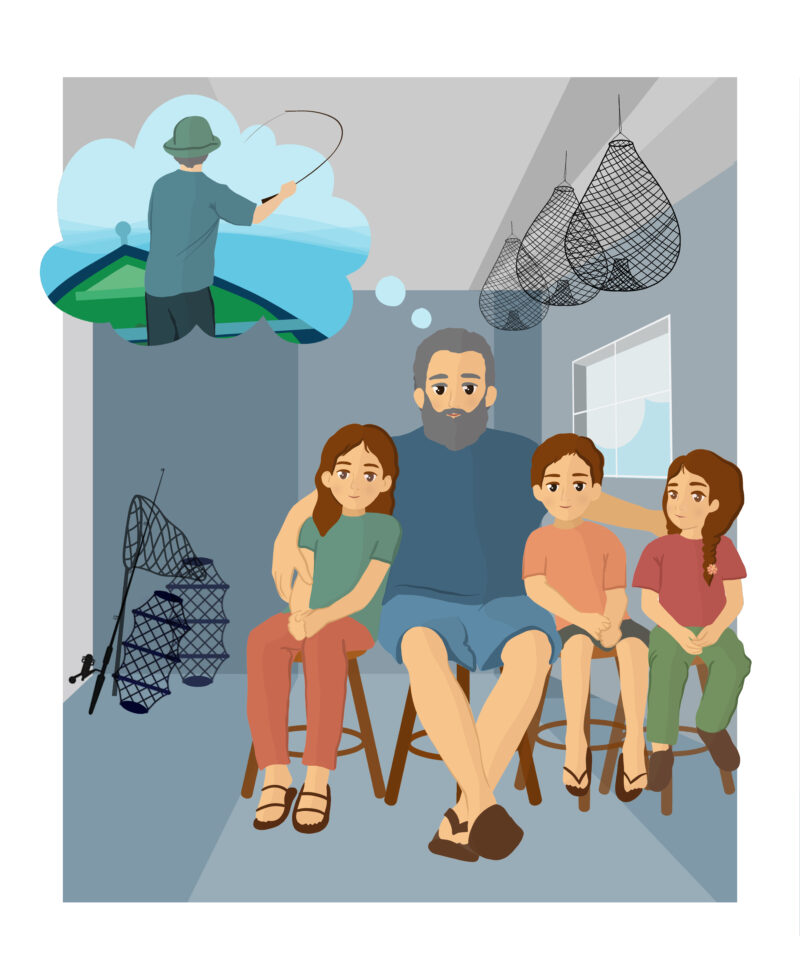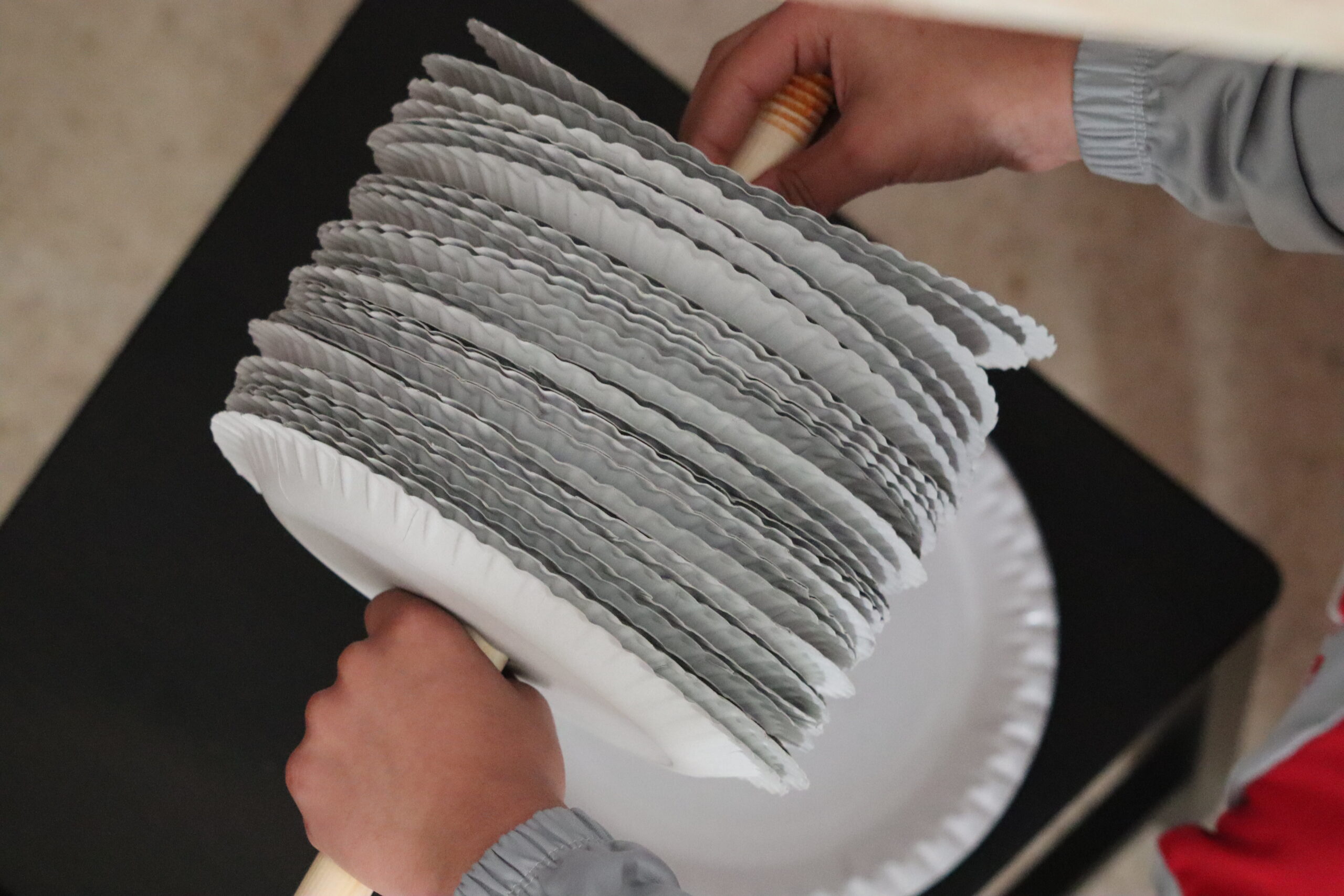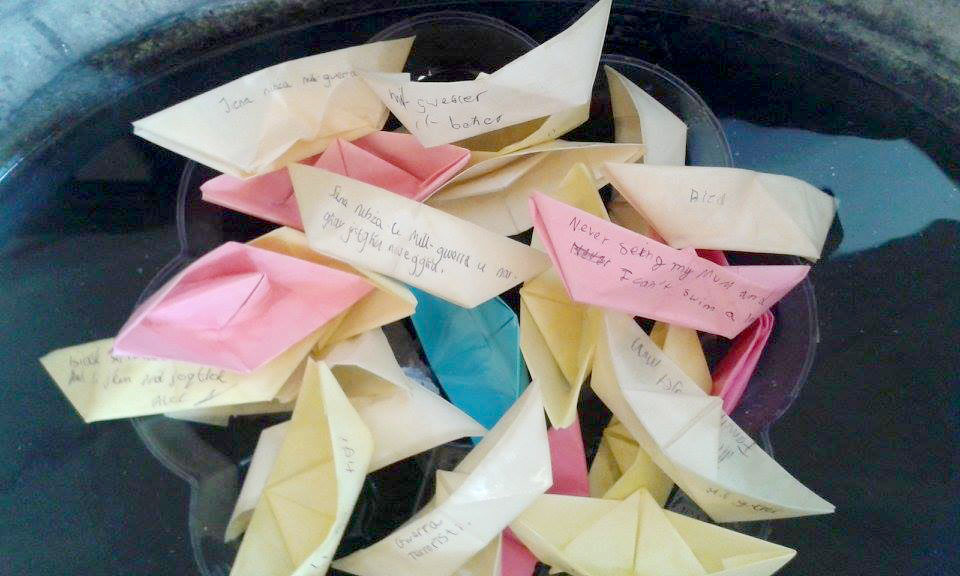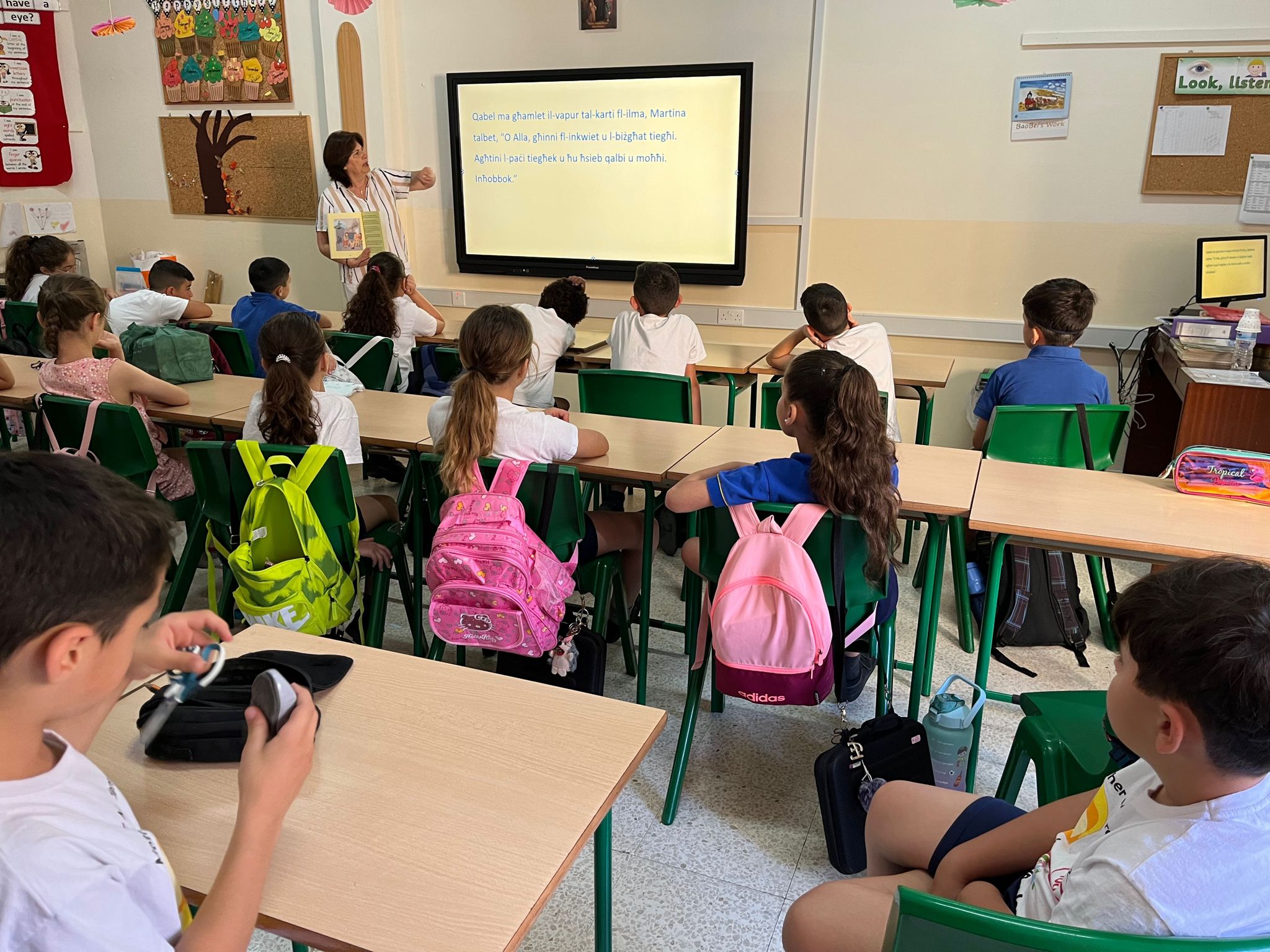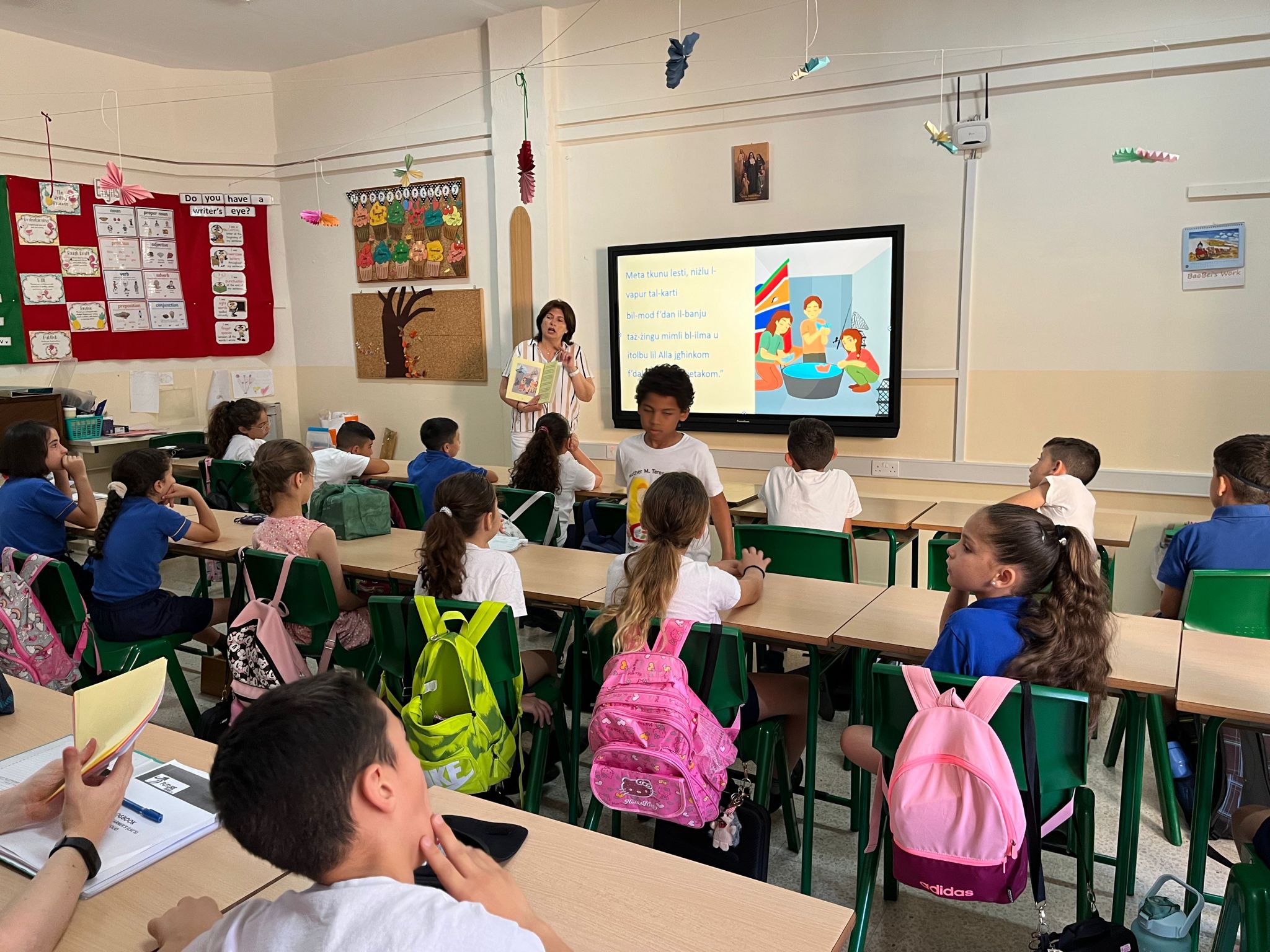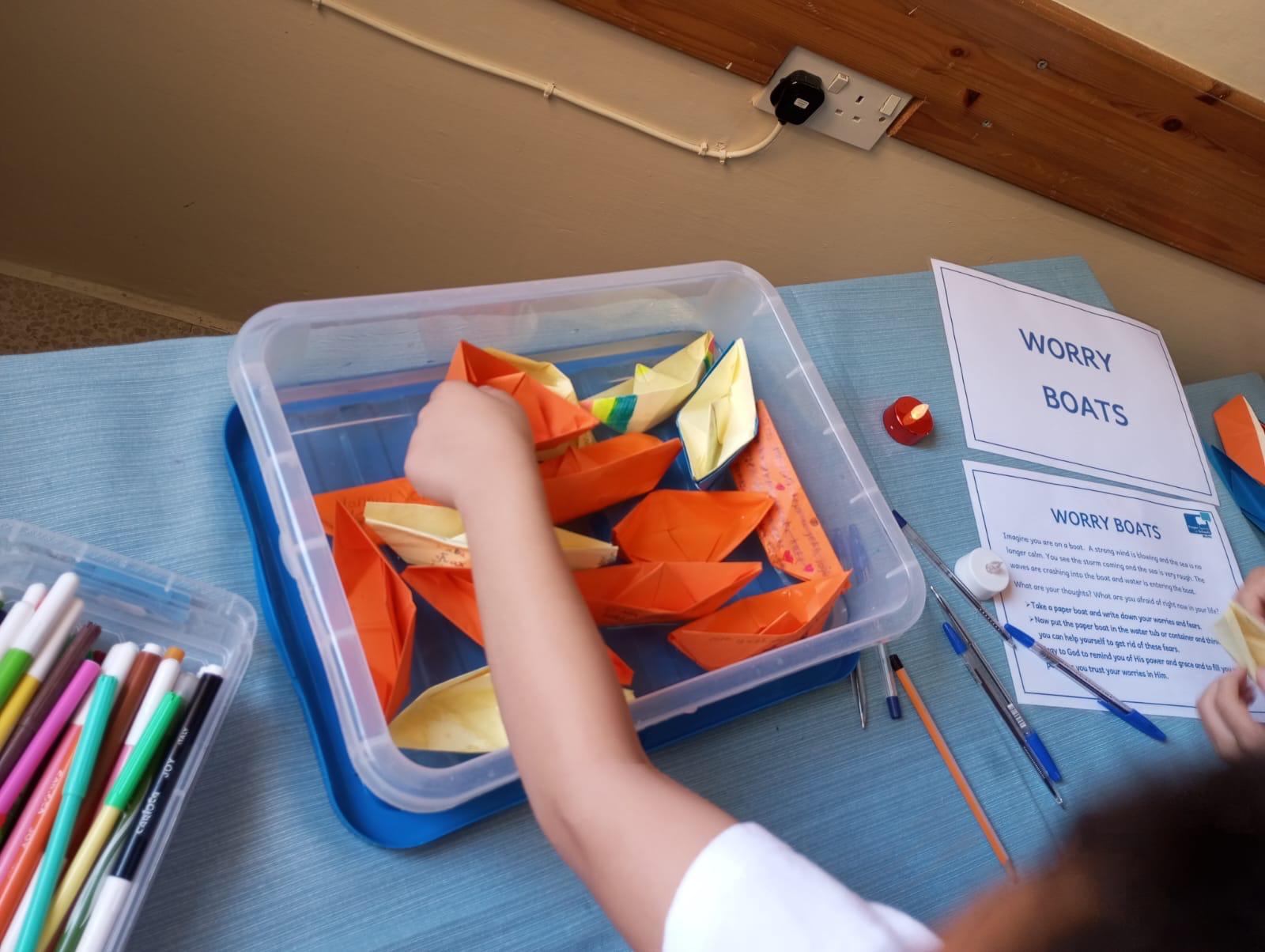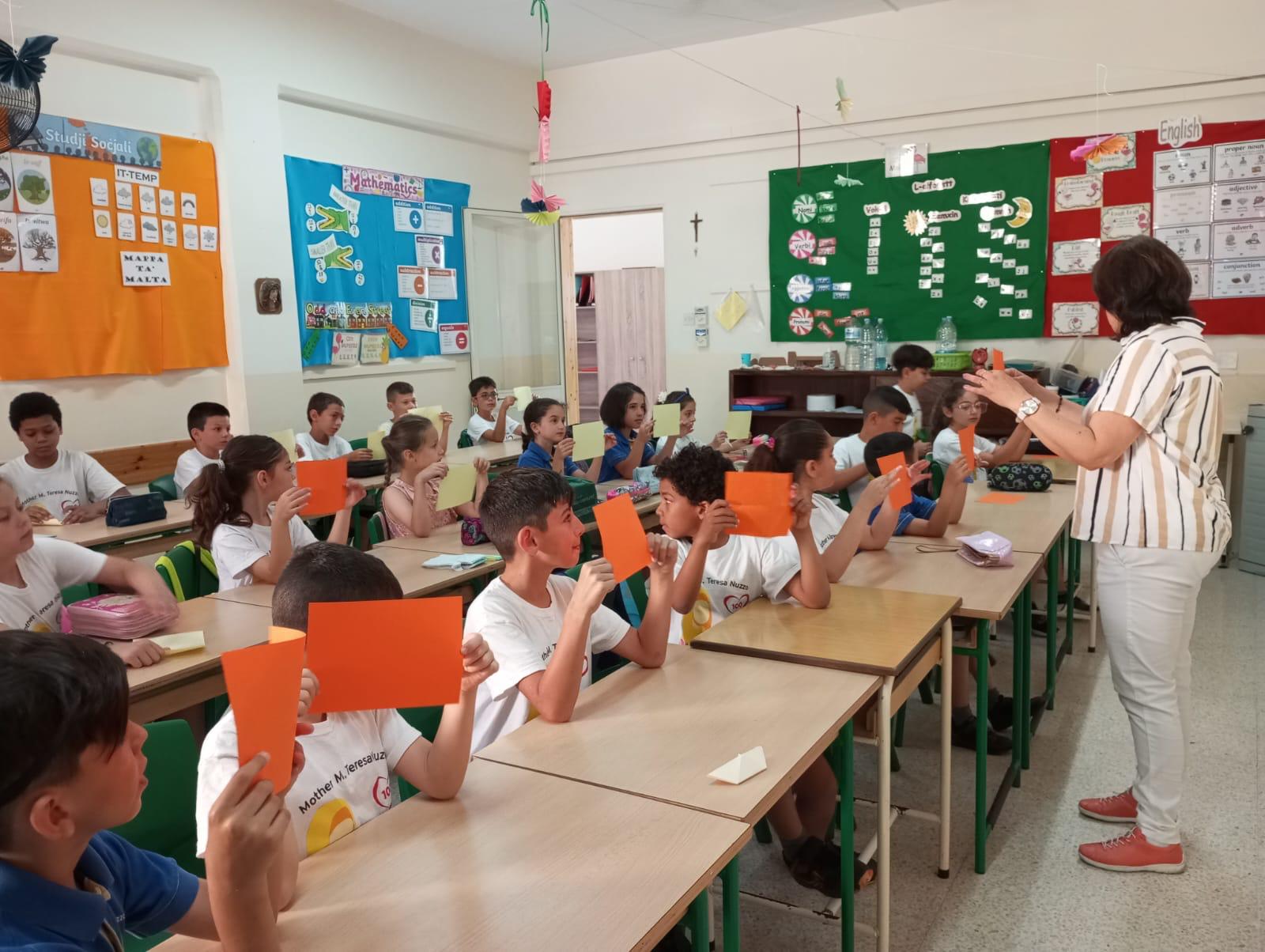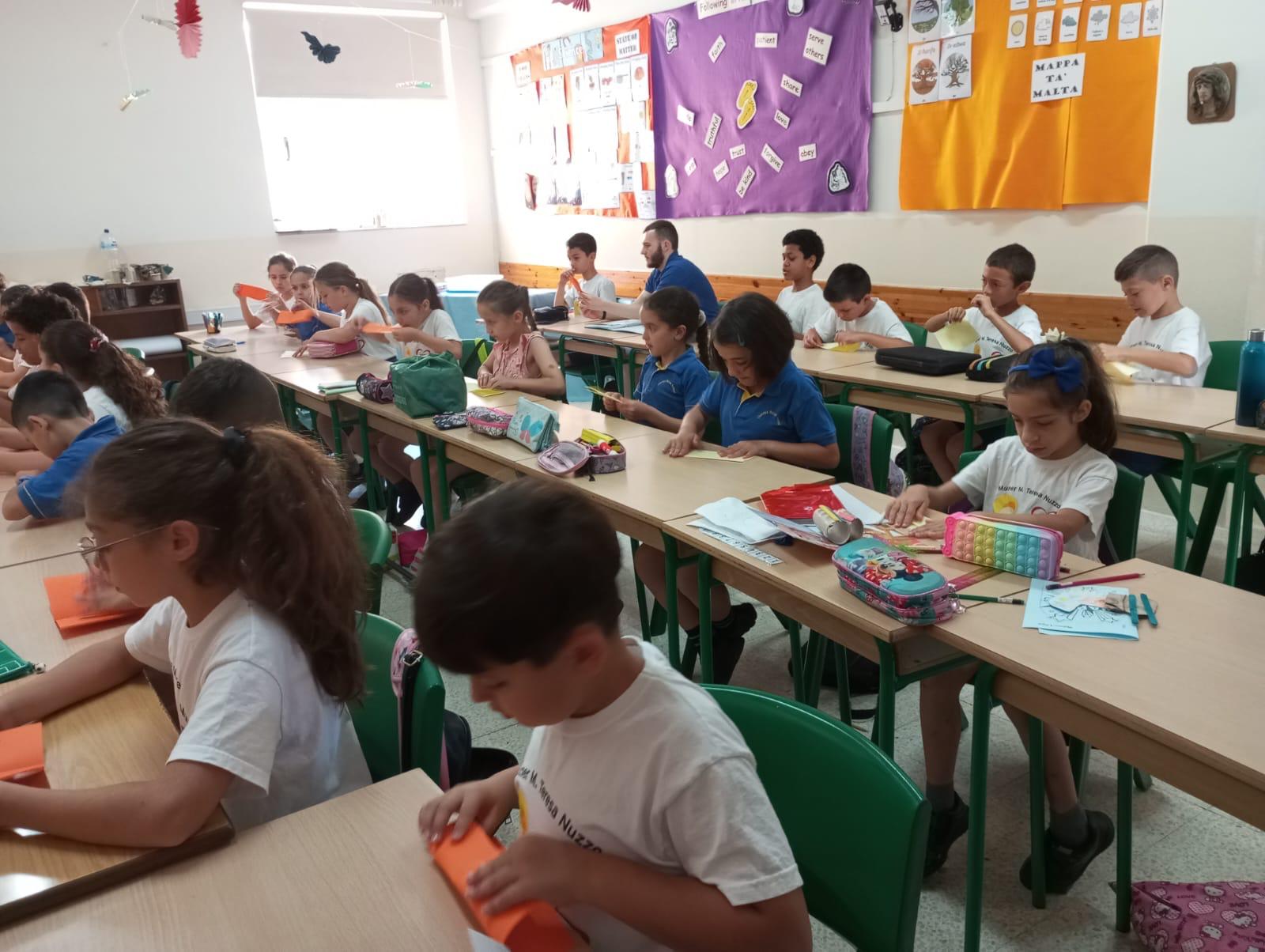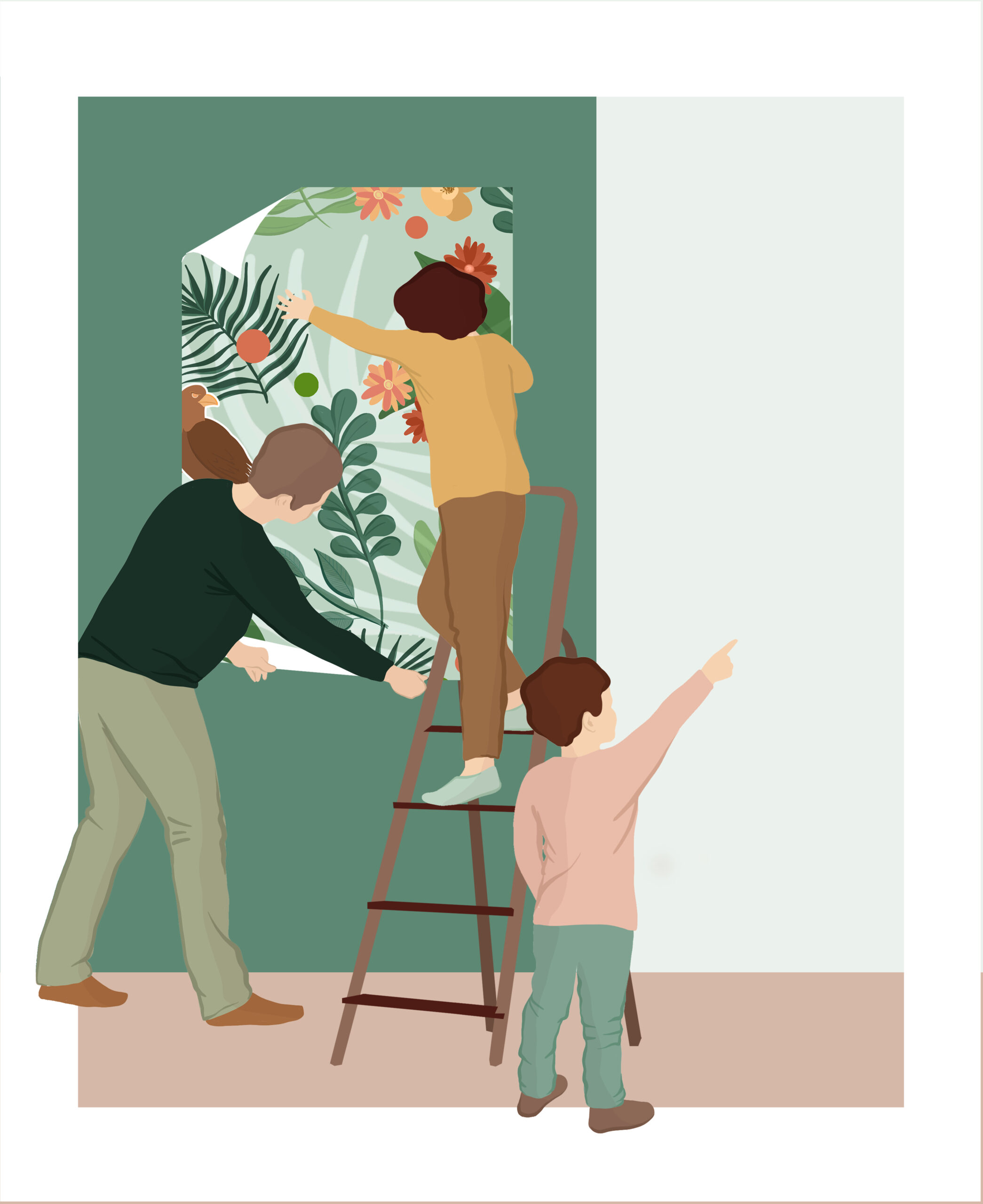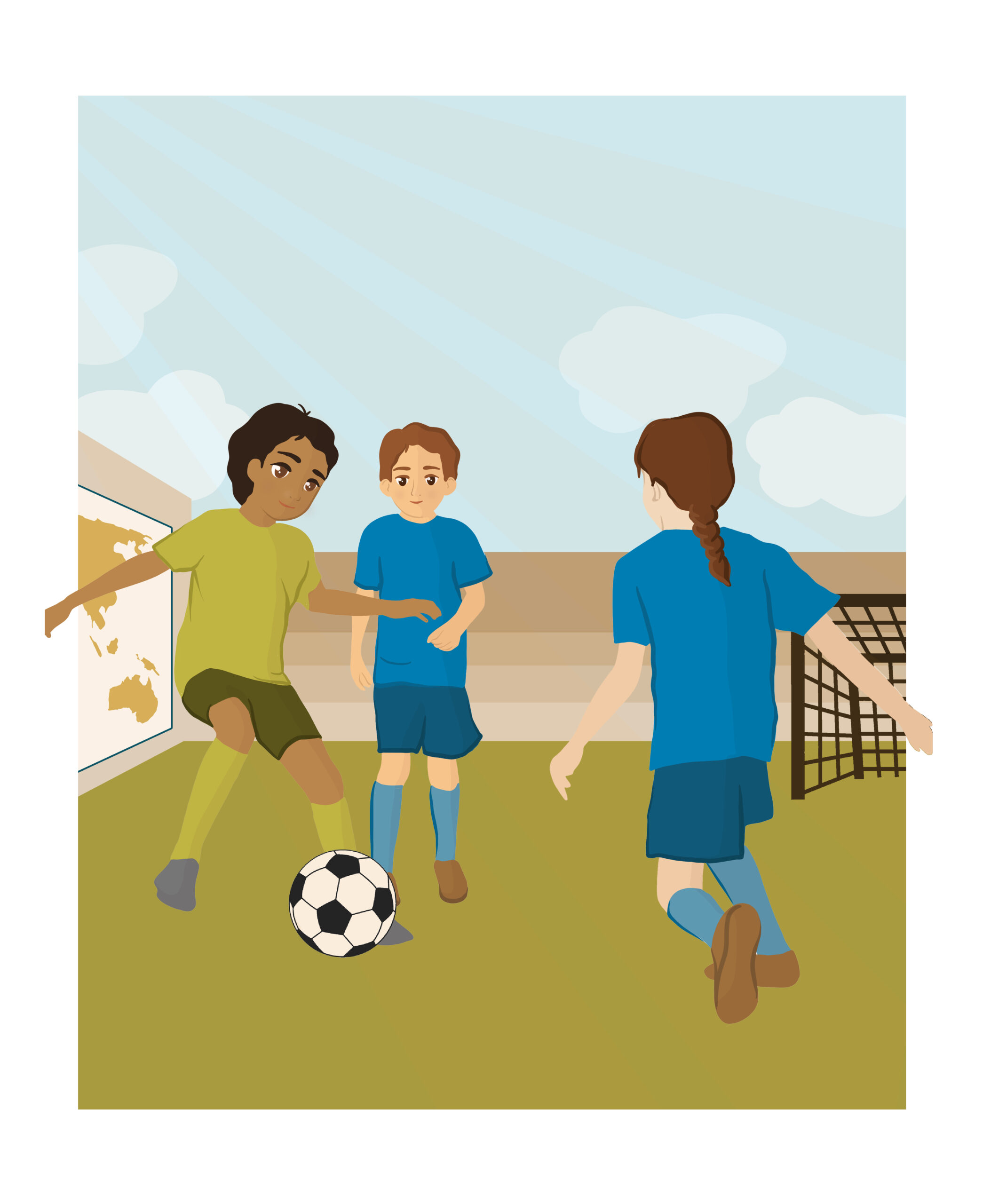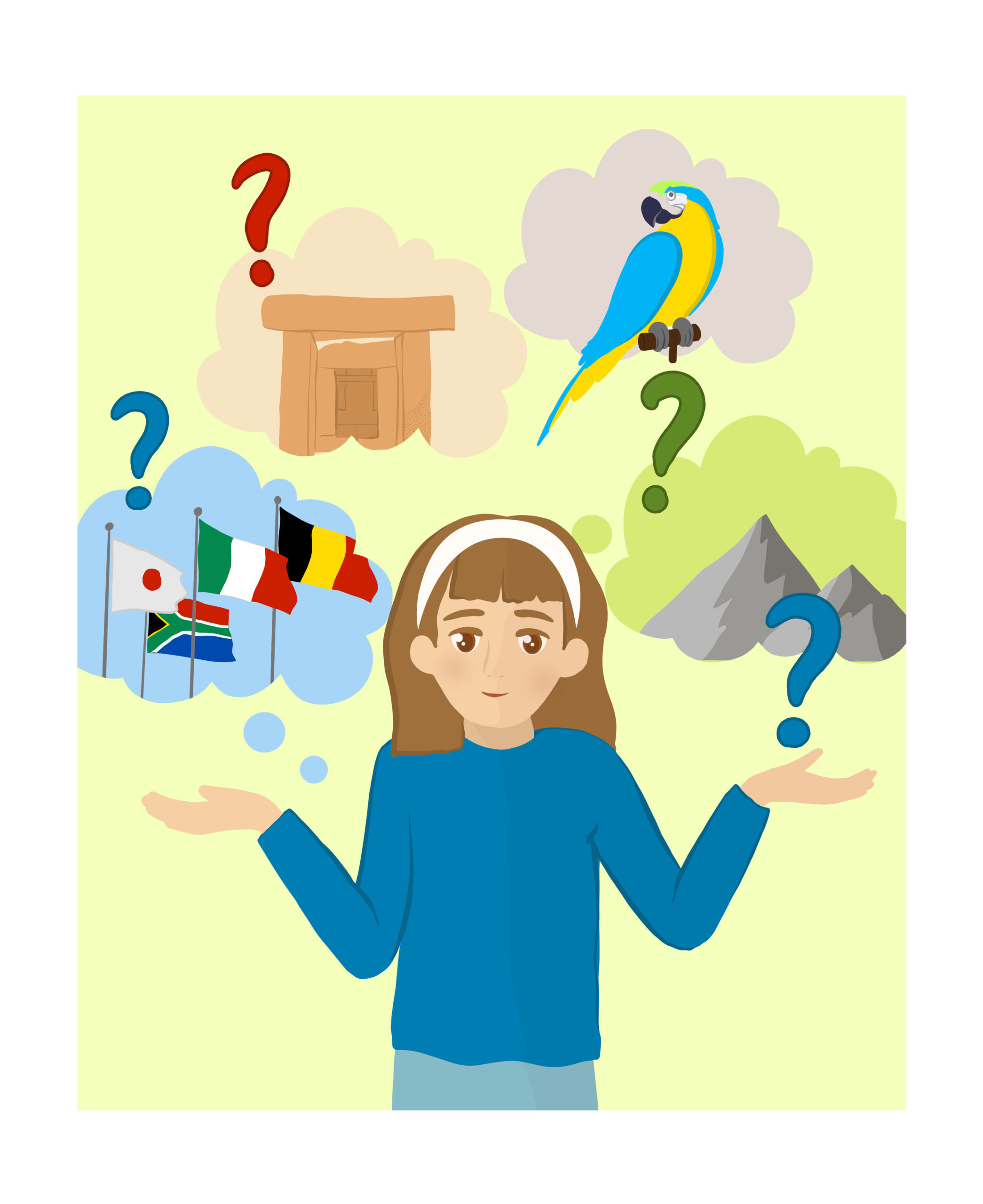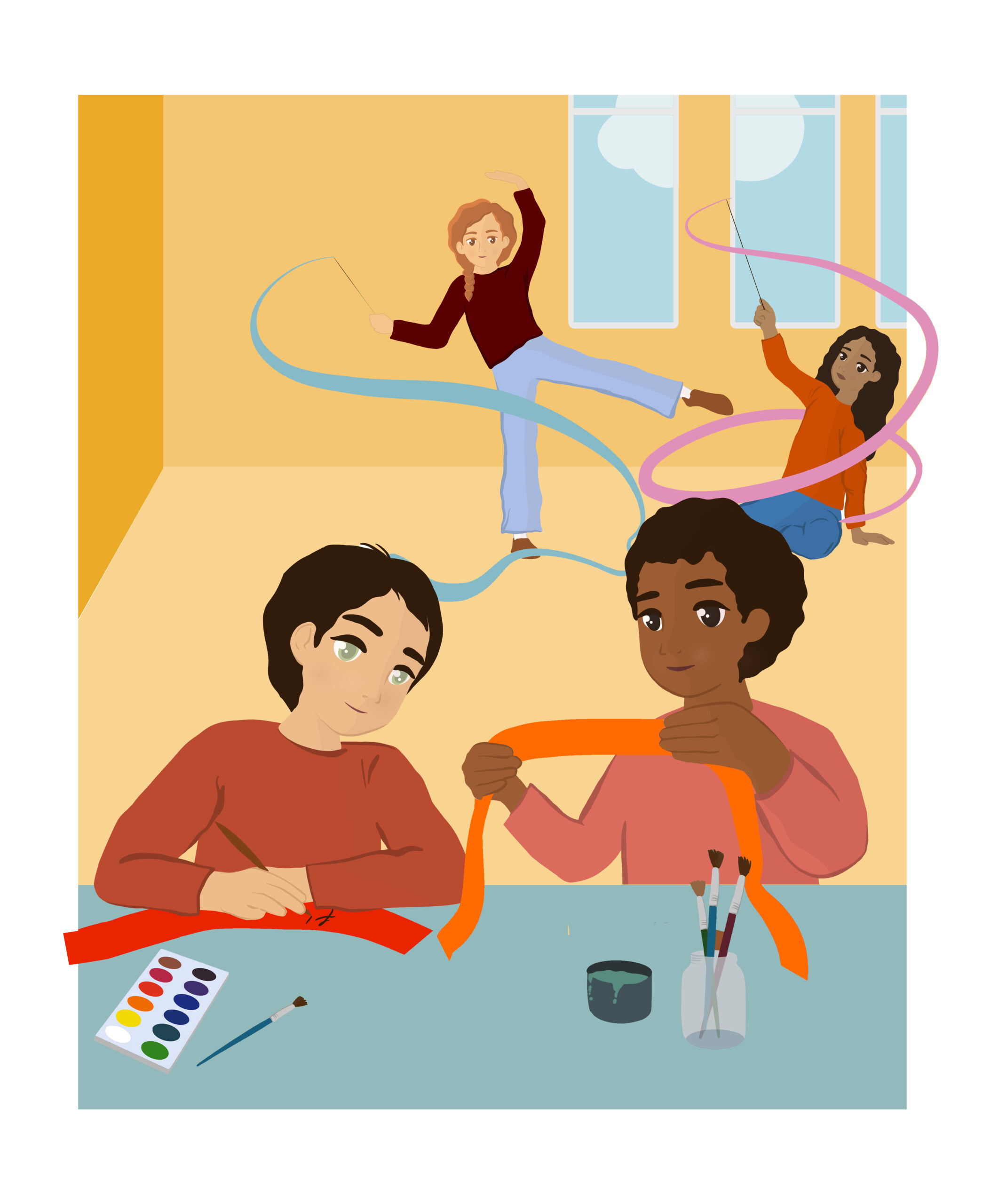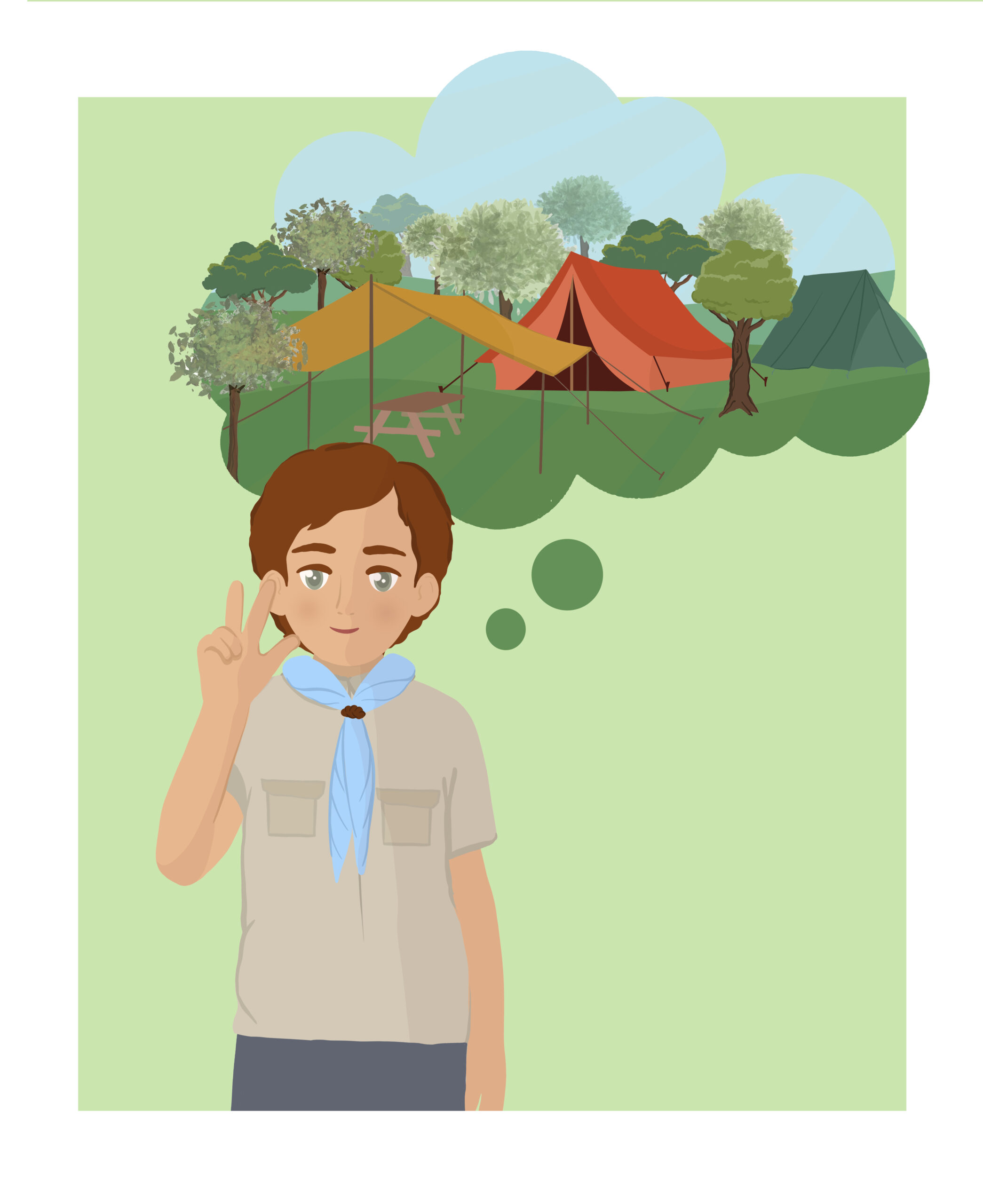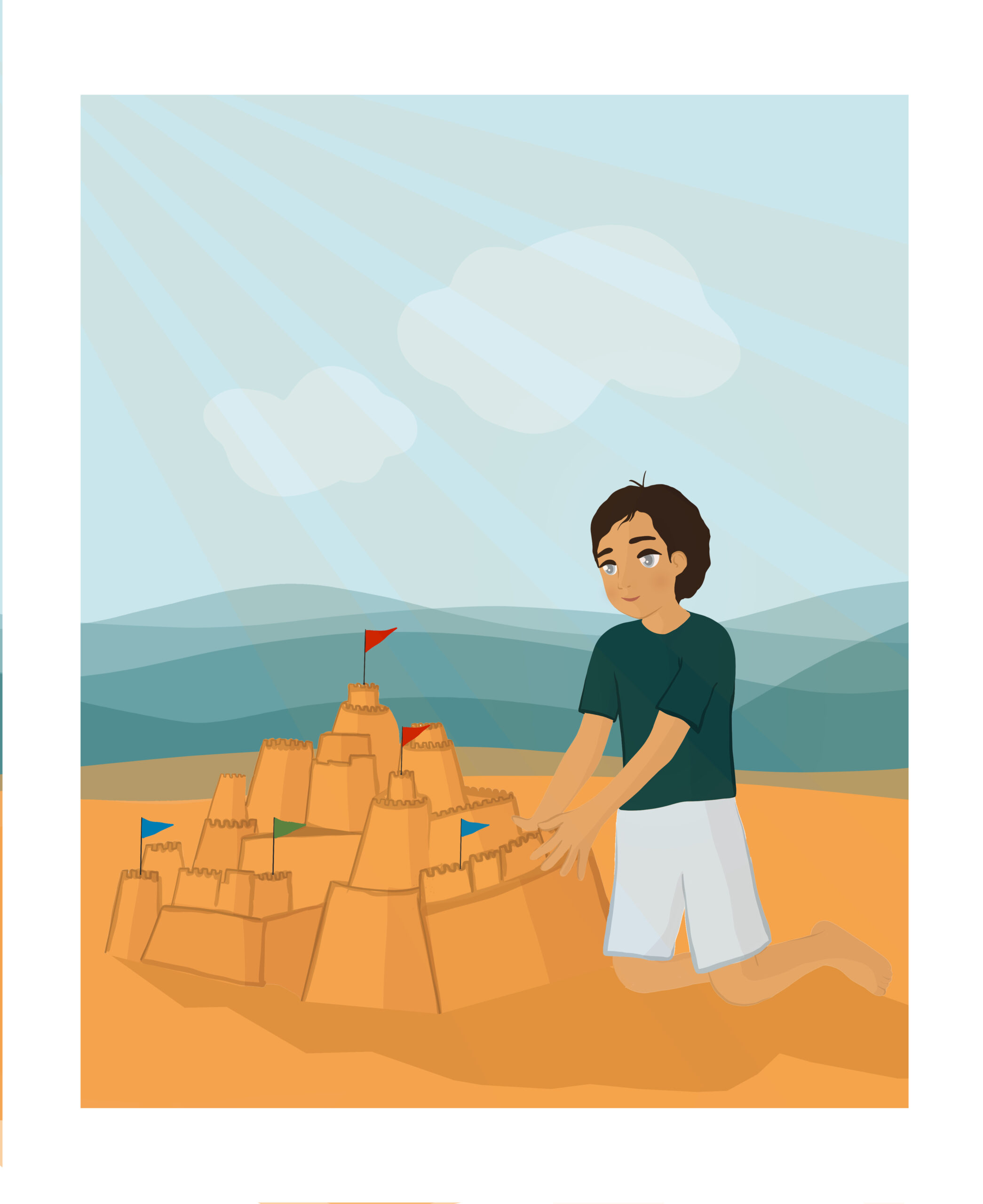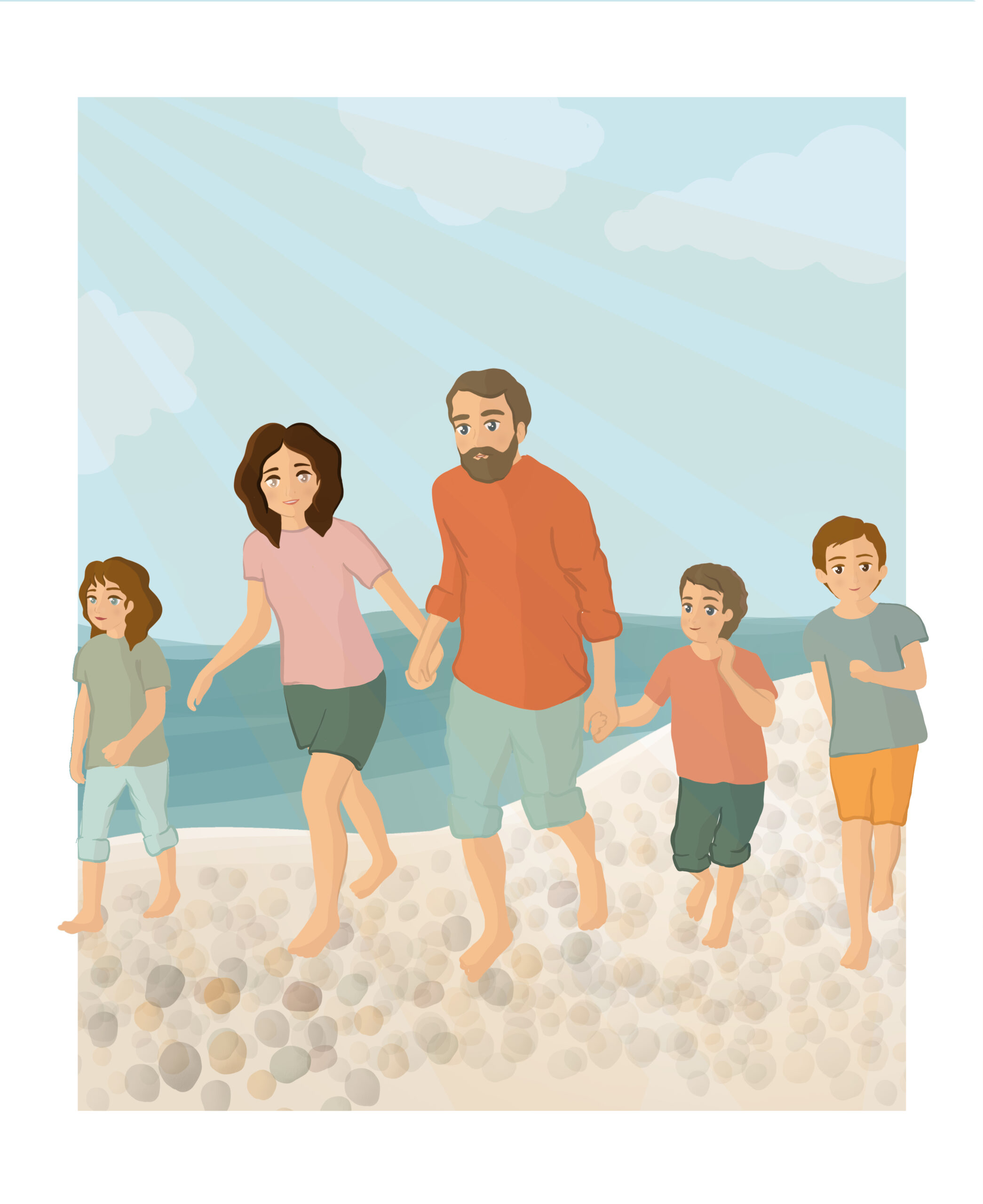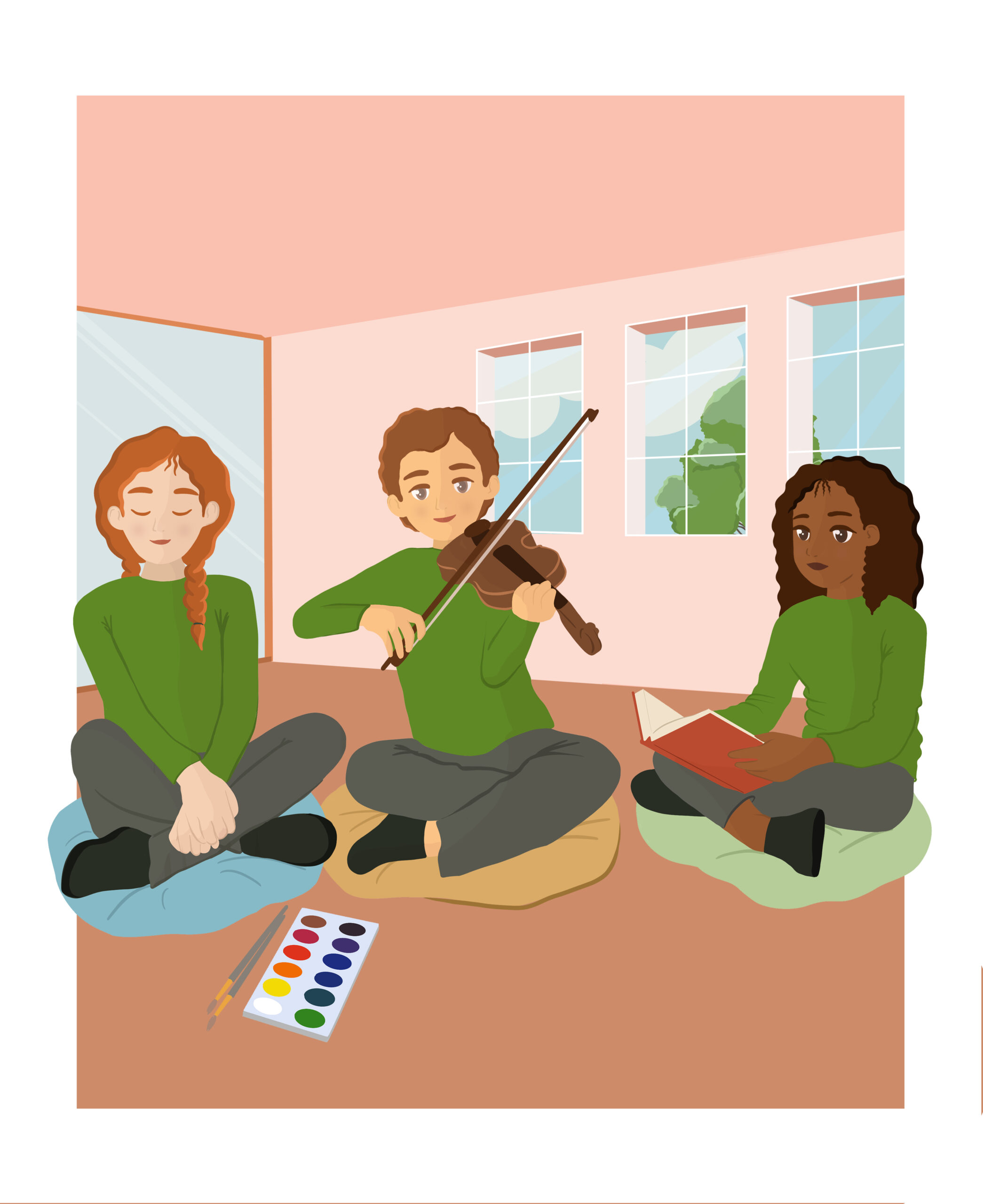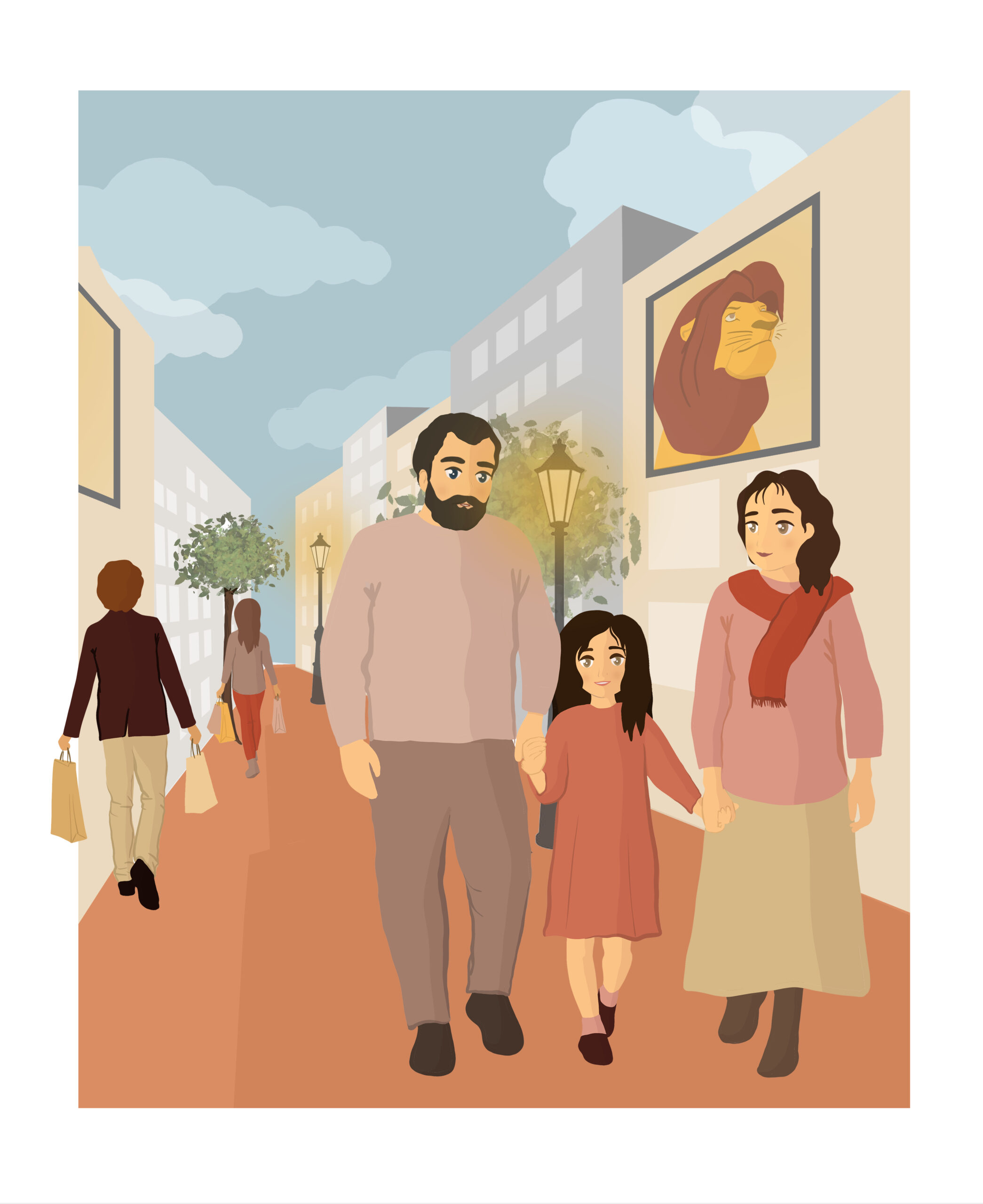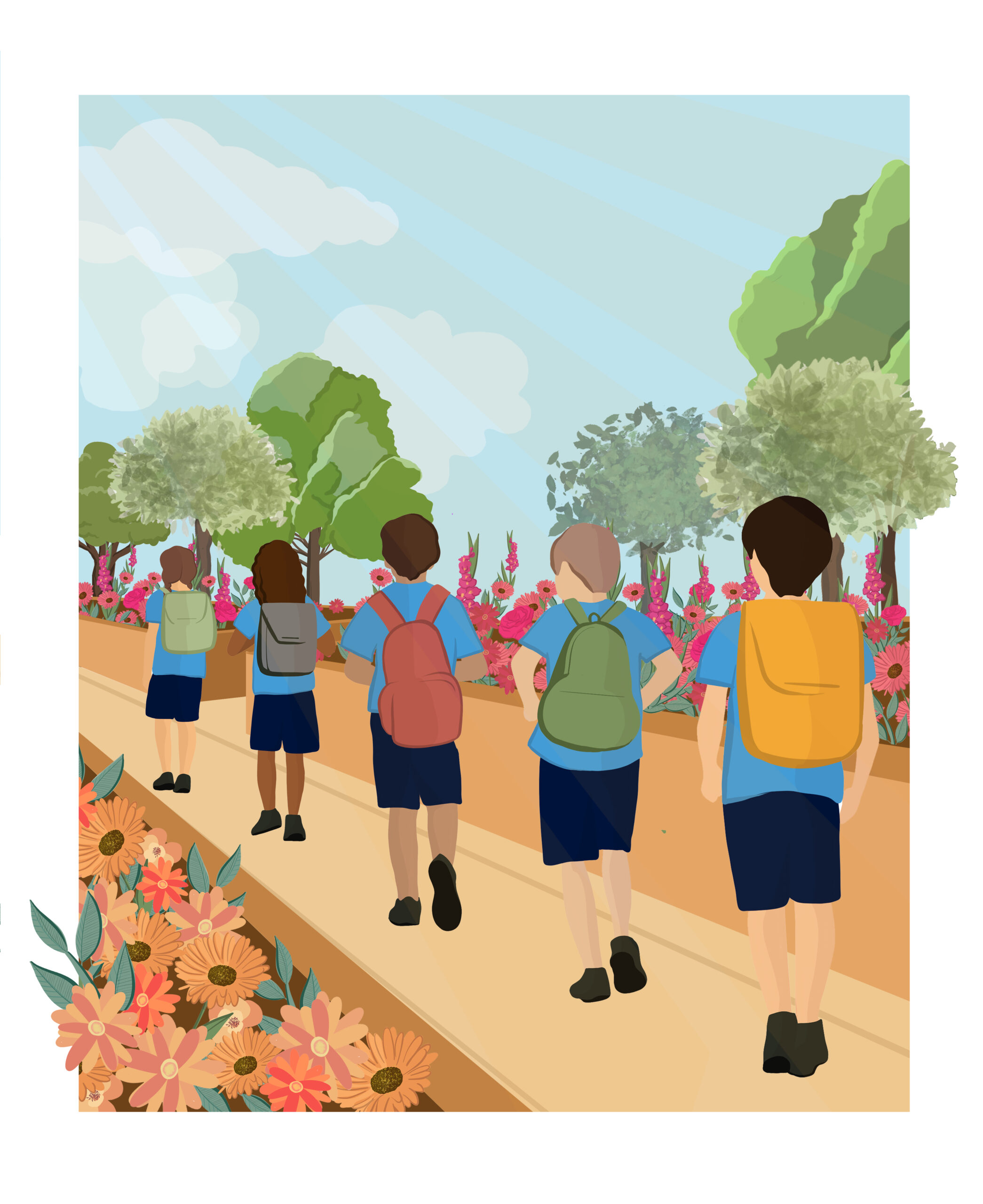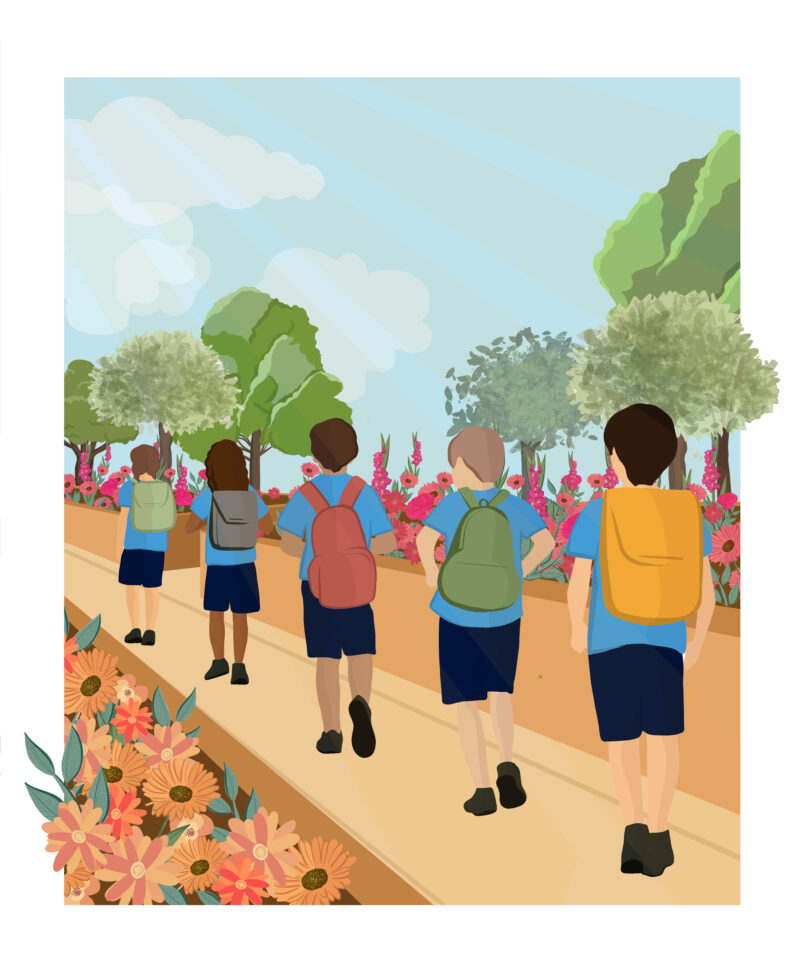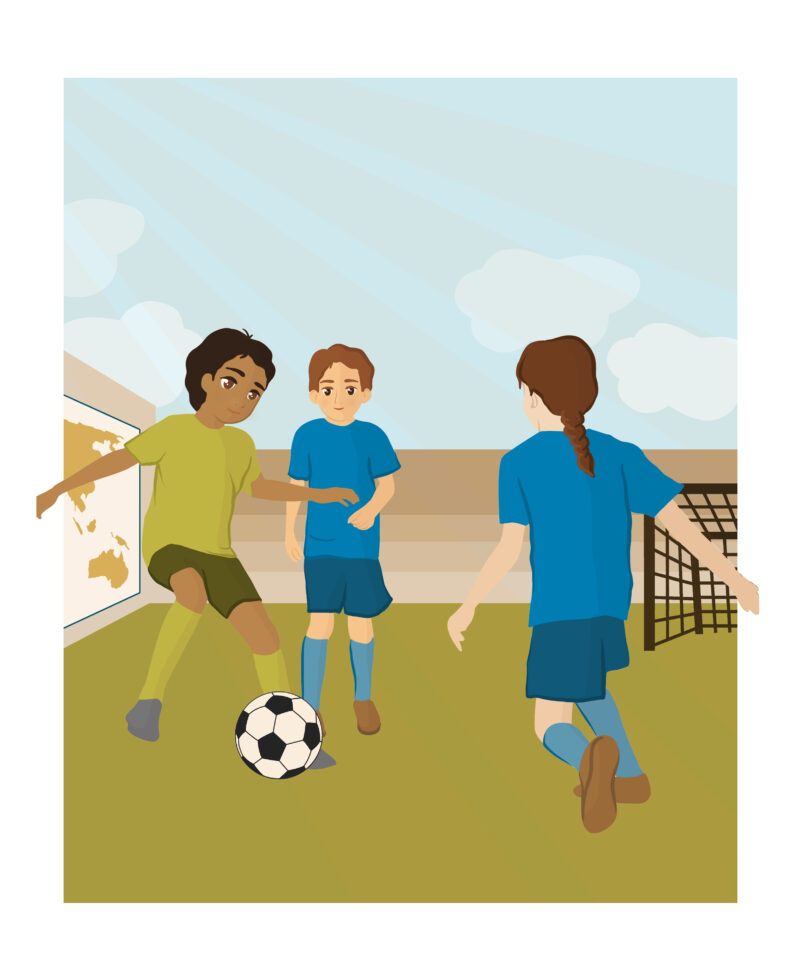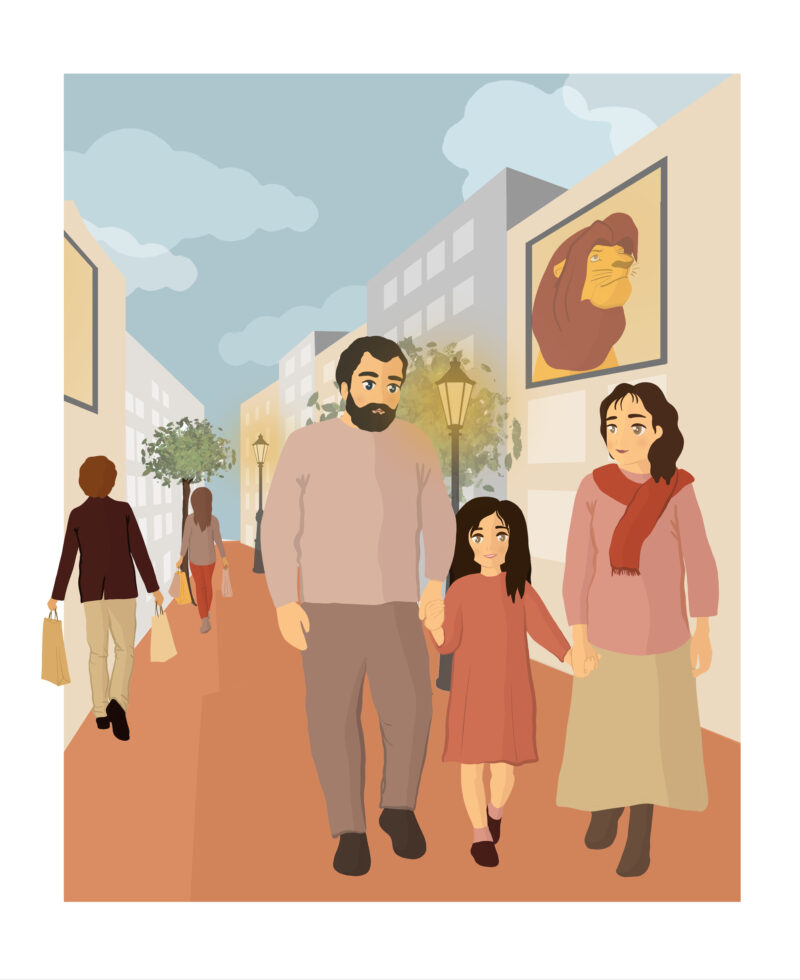The story is about a grandfather who was a fisherman. He tells his adventures at sea to his grandchildren. One day he told them to get on his fishing boat. When they got off, they created a paper boat and on it, they wrote and drew their fears and worries.
Ages
- Primary Years
- Middle Years
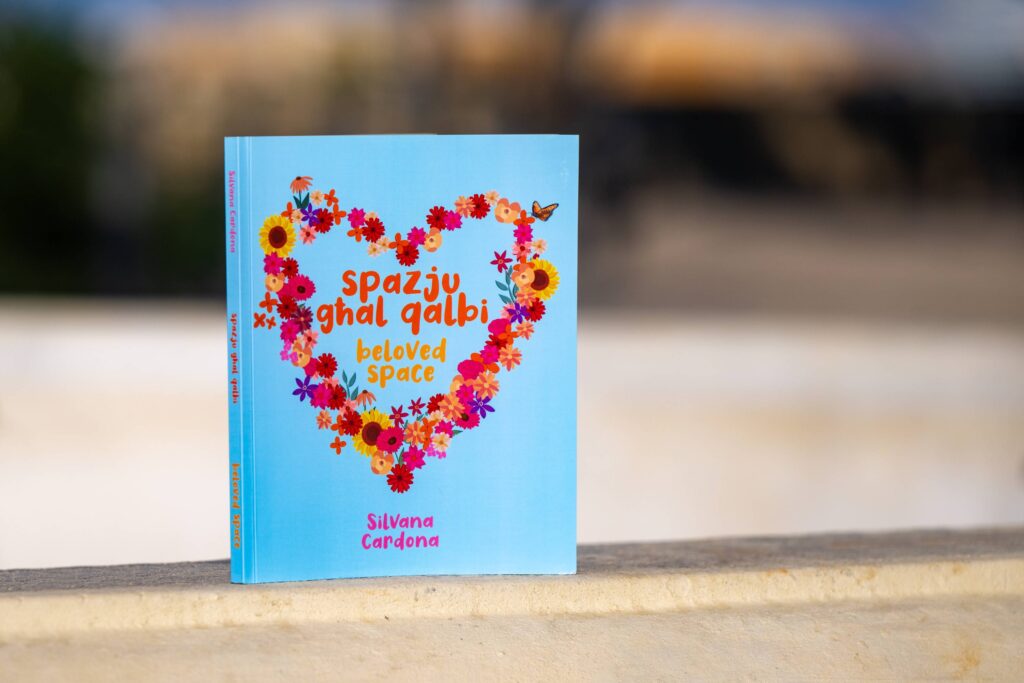
Il-Luzzu tan-Nannu
In-nannu ta’ Karl, Thea u Martina, iħobb jirrakkontalhom l-avventuri li għadda minnhom meta kien jaħdem fuq il-baħar bħala sajjied. Waqt li jkun bilqiegħda għall-frisk fuq xi banketta mal-bieb tal-garaxx, erħilu jgħidihom li għalkemm xogħlu kien iebes, xorta kien jieħu gost joħroġ bil-luzzu u jaqbad ħafna ħut matul l-istuġun tal-lampuki, l-istaġun tat-tkarkir u l-istaġun tal-lampara.
“Tafu kemm kont indum nistad?” staqsa n-nannu lin-neputijiet tiegħu. “Ħafna drabi kont indum sigħat twal, ġranet u anke ljieli fuq il-baħar biex naqbad ħafna ħut. Imbagħad meta nkun lest mis-sajda, nidħol lura lejn l-art u nibqa’ sejjer bil-ħut il-pixkerija.”
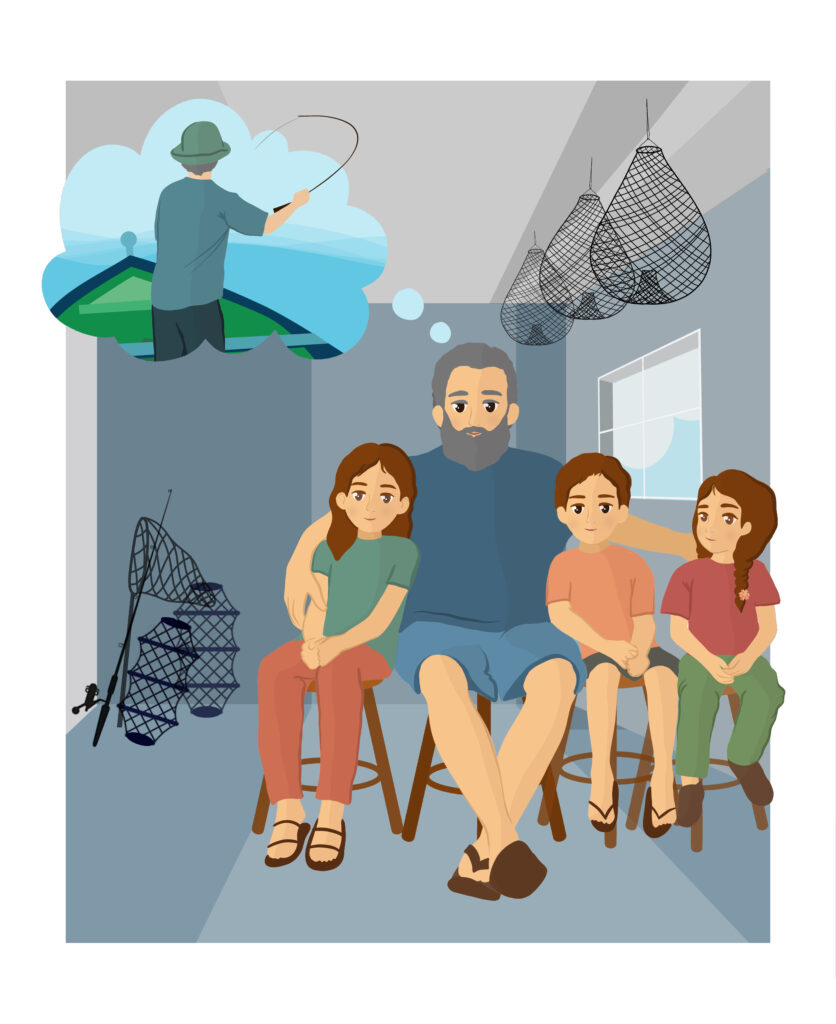
In-nannu jgħidilhom ukoll dwar il-ħut kbir li kien jaqbad bħal tonn u pixxispad, dwar il-qarnit u l-klamari u dwar ħut ieħor bħal vopi, fanfri u lampuki.
It-tfal jibqgħu mistagħġba jisimgħuh l-aktar meta jgħidilhom dwar id-diversi maltempati li ltaqa’ magħhom fuq il-baħar meta kien ikun bejn sema u ilma.
“Dak iż-żmien ma kellix mowbajl, tafux, biex inċempel lin-nanna u min jaf kemm kienet tinkwieta għalija li seta’ ġrali xi ħaġa peress li kont inkun ħafna kilometri ’l bogħod mill-art.”
“U dawk x’inhuma, nannu?” staqsa kurjuż Karl waqt li pponta sebgħu lejn rokna mimlija affarijiet fil-garaxx.
“Dawk huma l-għodda tas-sajd tiegħi li kont nuża. Kelli n-nases tal-vopi, in-nases tal-qarnit, il-konzijiet, ir-rix u s-snanar, fost oħrajn,” wieġbu n-nannu.
“Issa itilgħu ftit fuq il-luzzu ħa taraw biex kont immur nistad. Martina, inti mur fil-pruwa. Thea, inti mur fil-poppa, u Karl, inti mur ara l-kaxxa tal-friża fejn konna nistivaw il-ħut hekk kif jinqabad. Kif tlestu ejjew ħdejja,” kompla jgħidilhom in-nannu.
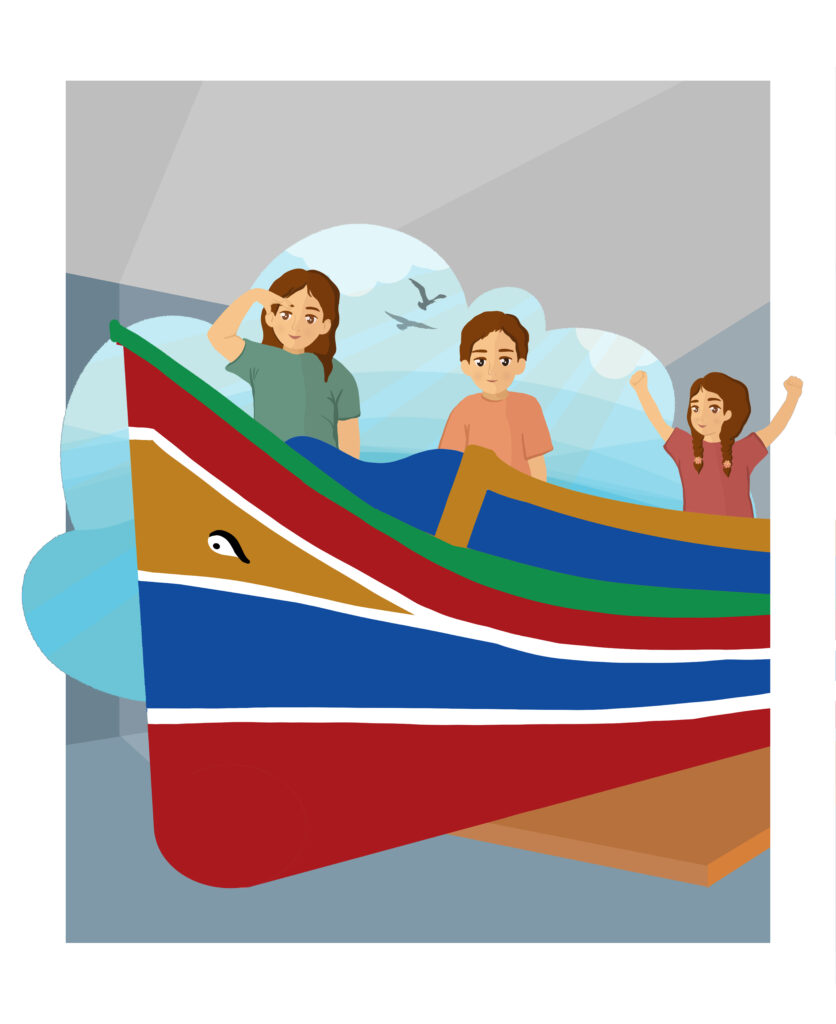
Kif telgħu fuq il-luzzu, it-tfal stħajluhom sajjieda ċkejkna għaddejjin minn nofs ta’ baħar bil-ħut jgħum ma’ żaqq il-luzzu matul il-ġurnata. Immaġinaw ukoll lilhom infushom qegħdin hemm barra billejl f’dak id-dlam ċappa jistadu għad-dawl tal-qamar.
Imbagħad mill-pruwa, Martina lemħet lin-nannu jqum minn fuq il-banketta, ġab koċċ karti f’idu u reġa’ poġġa fuq il-banketta.
“Nann, nann, x’ser tagħmel b’dawk il-karti f’idejk?” staqsiet pronta pronta.
“Issa, inżlu minn fuq il-luzzu u ejjew ħdejja ħa nurikom,” weġibha n-nannu.
It-tfal niżlu u marru ħdejn in-nannu. Rawh jitwi l-karti u jifforma vapur tal-karti. It-tfal osservaw kif kien qed jitwi l-karti u malajr tgħallmu jagħmlu vapur tal-karti huma wkoll.
Imbagħad in-nannu qalilhom,“Tiftakru meta għidtilkom dwar il-maltempati li kelli fuq il-baħar, u l-inkwiet li kienet tinkwieta n-nanna għalija?”
“Iva, iva,” wieġbu t-tfal.
“Issa nixtieqkom tieħdu vapur tal-karti, toqogħdu ftit għall-kwiet fuq xi banketta u waqt li żżommu l-vapur tal-karti f’idejkom, aħsbu ftit f’dak li qiegħed jinkwetakom u jbeżżagħkom fil-ħajja tagħkom bħalissa. Jekk tridu tistgħu tiktbu dwar l-inkwiet u l-biżgħat tagħkom fuq il-vapur tal-karti wkoll. Meta tkunu lesti, niżlu l-vapur tal-karti bil-mod f’dan il-banju taż-żingu mimli bl-ilma u itolbu lil Alla jgħinkom f’dak li qed jinkwetakom.”
Qabel ma għamlet il-vapur tal-karti fl-ilma, Martina talbet, “O Alla, għinni fl-inkwiet u l-biżgħat tiegħi. Agħtini l-paċi tiegħek u ħu ħsieb qalbi u moħħi. Inħobbok.”
Wara n-nannu qalilhom, “Ftakru li Alla dejjem ikun magħna meta nħossuna inkwetati u mbeżżgħin u bħalma kull maltempata fuq il-baħar tgħaddi, hekk ukoll kull maltempata li niltaqgħu magħha fil-ħajja tagħna, tgħaddi wkoll bil-grazzja t’Alla.”
Il-Luzzu – My Grandfather’s Fishing Boat
Karl, Thea and Martina’s grandfather enjoys telling them about his adventures when he used to work as a fisherman. As he sits on a stool by the door of his garage, he tells them that though his work was very hard, he still enjoyed going out with the luzzu to catch fish during the dolphin fish season, the trawling season, and the lamprey season.
“Do you know how long I used to stay out at sea fishing?” grandpa asks his grandsons and granddaughter. “I often spent long hours, days and even nights at sea catching a lot of fish. Then when I was done fishing, I went back to the land and straight to the fish market.”
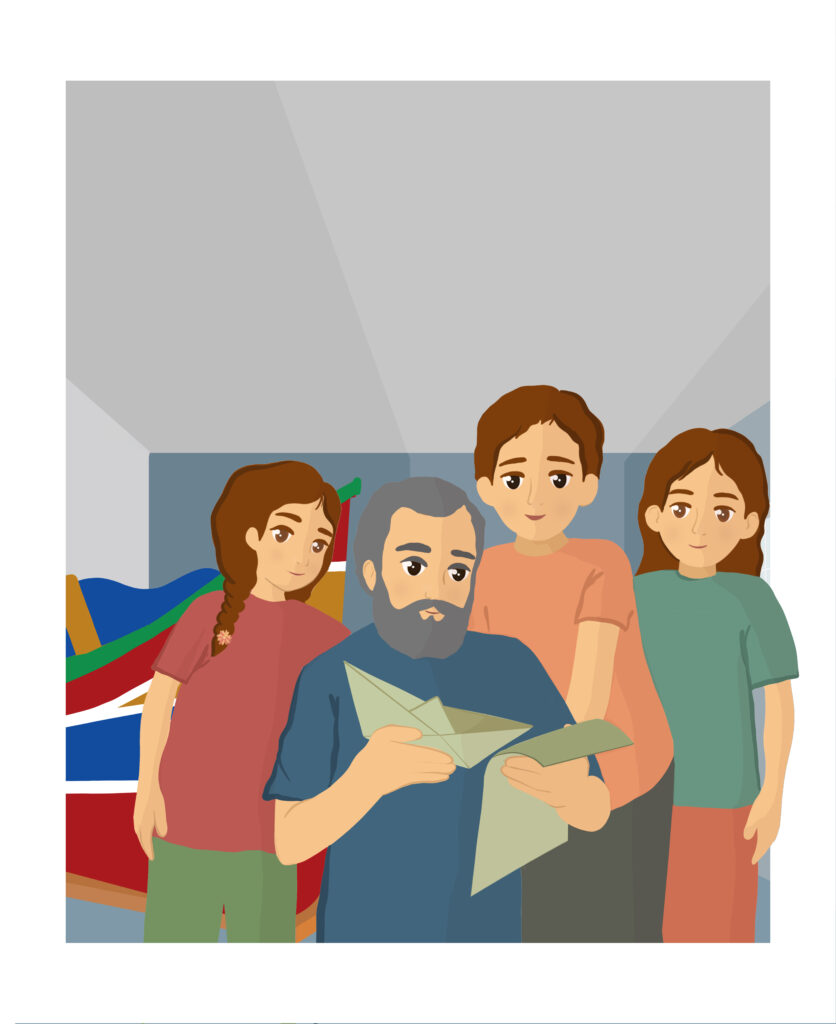
Their grandpa also tells them about the huge fishes that he caught like tuna and swordfish, about the octopus and the squid and about other fish like bogue fish, pilot fish and dolphin fish.
The children are amazed, especially when he tells them about the various storms he encountered far out at sea.
“And you know what? I didn’t have a mobile phone at that time, to call your grandmother and inform her that I am fine. She used to worry that something wrong might happen to me since I used to be many kilometres away from land.”
“And what are those, grandpa?” asks Karl curiously as he points his finger to the objects in the corner of the garage.
“Those are my fishing tools which I used to work with. I had fishing net coop traps, fishing trap baskets, nets, feather fishhooks and more,” replies their grandpa.
“Now climb up onto the luzzu to see my fishing boat. Martina, you go on the bow (the front of the boat), Thea, you go on the stern (the rear part of the boat), and Karl, you go in the cold storage to see where we used to put the catch and keep the fish cool with ice. When you are ready, come again down near me,” instructs their grandpa.
On the luzzu, the children imagine themselves as fishermen sailing out at sea with fish swimming past their boat during the day. They also imagined themselves out at sea during the night in pitch darkness, fishing under the moonlight.
Then from the bow, Martina notices that her grandpa has got up from his wooden stool, grabbed some papers and sat again on the wooden stool.
Promptly she asked him, “Grandpa, grandpa, what are you going to do with the papers in your hand?”
And he replies, “Now, climb down from the luzzu and come near me to show you.”
The children come down and go near grandpa. They see him folding a paper to make a paper boat. They observe him and, in an instance, they learn how to do a paper boat too.
Then grandpa tells them, “Do you remember when I told you about the storms which I encountered out at sea, and about all the worries and fears your grandmother went through because of me?”
“Yes, yes,” reply the children.
“Now, I want you to take a coloured paper boat, sit in silence on the wooden stools, and as you hold the paper boat in your hands dearly, think about things that worry you or that you are afraid of. If you want to, you may write your worries and fears on the paper boat too.
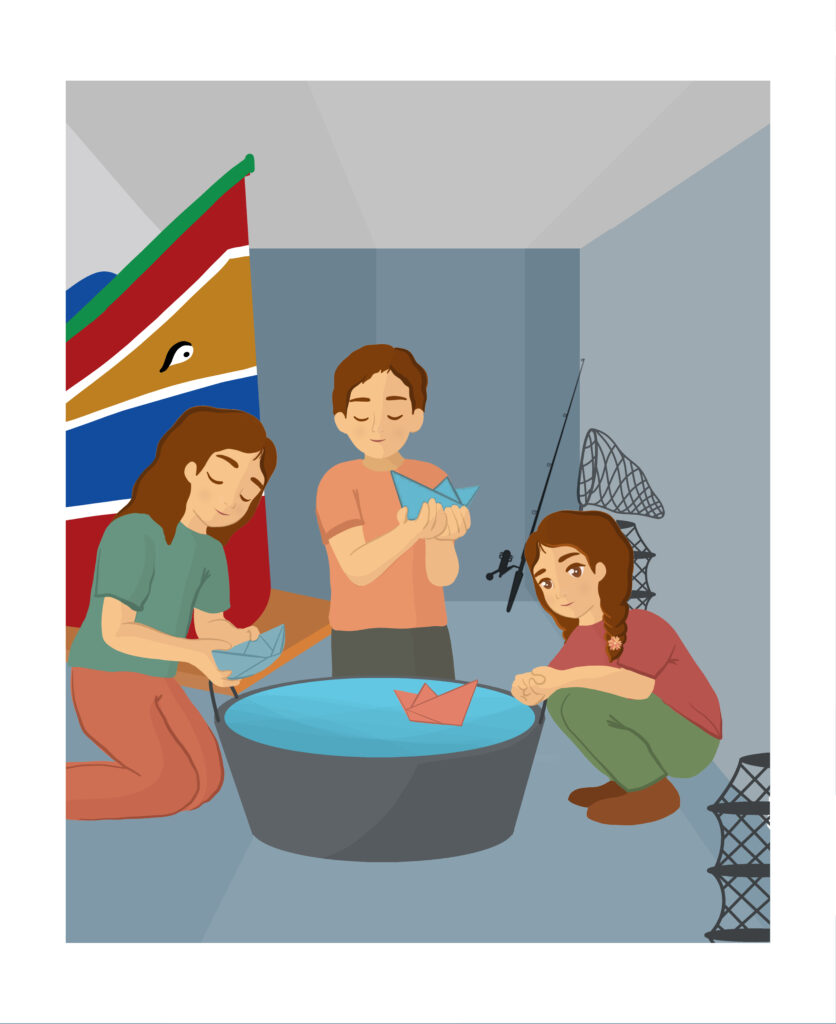
“When you are ready, gently put the paper boat in this bath container filled with water and ask God to help you release your worries.”
Before putting the paper boat in the water, Martina prays, “Dear God, please help me through my worries and fears. Give me your peace and guard my heart and my mind. I love you.”
Then grandpa tells them, “Remember that God is always with us when we are worried and anxious and just like the storms in the sea, all the storms that we experience in our lives will come and go with God’s grace.”
Il Luzzu – La Barca da Pesca di mio nonno
Il nonno di Karl, di Thea e di Martina si diverte a raccontare loro le sue avventure quando faceva il pescatore. Seduto su uno sgabello davanti alla porta della sua rimessa, narra loro che, nonostante il lavoro fosse duro, si svagava ancora a uscire con il luzzu per catturare pesce durante la stagione delle lampughe, quella della pesca a strascico e quella delle anguille.
“Sapete quanto restavo in mare a pescare?” il nonno chiede a nipoti e alla nipote. “Spesso passavo lunghe ore, giorni e perfino notti in mare catturando molti pesci. Poi, finita la pesca, ritornavo a terra e andavo diritto al mercato del pesce”.

Il nonno racconta loro anche degli enormi pesci che catturava, come il tonno e il pescespada, e altri come polpo, calamaro, boga, pesce pilota e lampuga.
I ragazzi rimangono stupiti specialmente quando descrive le varie tempeste di mare che dovette affrontare.
“E sapevate una cosa? Allora non avevo un cellulare su cui chiamare vostra nonna per dirle che stavo bene. Si preoccupava che qualcosa di brutto potesse succedermi poiché stavo chilometri lontano da terra”.
“E cos’è quella roba, nonno?” chiede Karl mentre addita gli oggetti posti all’angolo della rimessa.
“Quelli sono gli arnesi da pesca con cui lavoravo. Avevo bertuelli, reti da pesca, nasse, ami e tant’altro”, risponde il loro nonno.
“Ora salite sul luzzu per osservare bene la mia barca da pesca. Martina, tu vai sulla prua (la parte anteriore della barca), Thea, tu vai sulla poppa (la parte posteriore della barca), e, Karl, tu vai nella cella frigorifera dove mettevamo il pescato per tenerlo fresco con il ghiaccio. Quando avrete finite, scendete di nuovo vicino a me”, ordina il nonno.
Sul luzzu i ragazzi s’immaginano pescatori sulla barca che s’avvia verso il mare con dei pesci che guizzano intorno ad essa durante la giornata. S’immaginano pure in alto mare durante la notte, nel buio pesto, a pescare sotto il chiaro di luna.
Poi, Martina dalla prua nota che il nonno s’è alzato dallo sgabello di legno, ha afferrato alcuni fogli e s’è seduto di nuovo su di esso.
Prontamente gli chiede, “Nonno, nonno, che cosa fai con quei fogli in mano?”.
E lui risponde, “Ora, scendi dal luzzu e vieni vicino a me perché ti mostri quel che sto facendo”.
I ragazzi scendono e vanno vicino al nonno. Lo vedono piegare un foglio e farne una barchetta di carta. Lo osservano e, in quattro e quattr’occhi, imparano a farne una anche loro.
Poi, il nonno dice loro, “Vi ricordate quando vi ho parlato delle tempeste di mare in cui mi ero imbattuto, e delle preoccupazioni e timori che la vostra nonna aveva avuto per causa mia?”.
“Certo”, rispondono i ragazzi.

“Ora, voglio che voi prendiate una barchetta di carta colorata, che vi sediate in silenzio sugli sgabelli di legno, e mentre tenete la barchetta di carta nelle mani, che pensiate a delle cose che vi preoccupano o di cui avete paura. Se volete, potete scrivere le vostre ansie e timori sulla barchetta di carta pure. Quando sarete pronti, mettete gentilmente la barchetta di carta nella tinozza da bagno riempita d’acqua e chiedete a Dio di aiutarvi a liberarvi dalle vostre ansietà”.
Prima di mettere la barchetta di carta nell’acqua, Martina prega, “Caro Dio, per favore aiutami quando ho ansie e paure. Dammi la tua pace e proteggi il mio cuore e la mia mente. Ti amo”.
Alla fine il nonno dice loro, “Ricordatevi che Dio è sempre con noi quando siamo preoccupati e ansiosi , e proprio come le tempeste in mare, tutte le tempeste che noi incontriamo nella nostra vita vengono e vanno con la grazia di Dio”.
Resources related to this story
We want to get to know you. To be able to bookmark your favourite content, please log in or sign up below.
User Sign Up
Discover more resources


